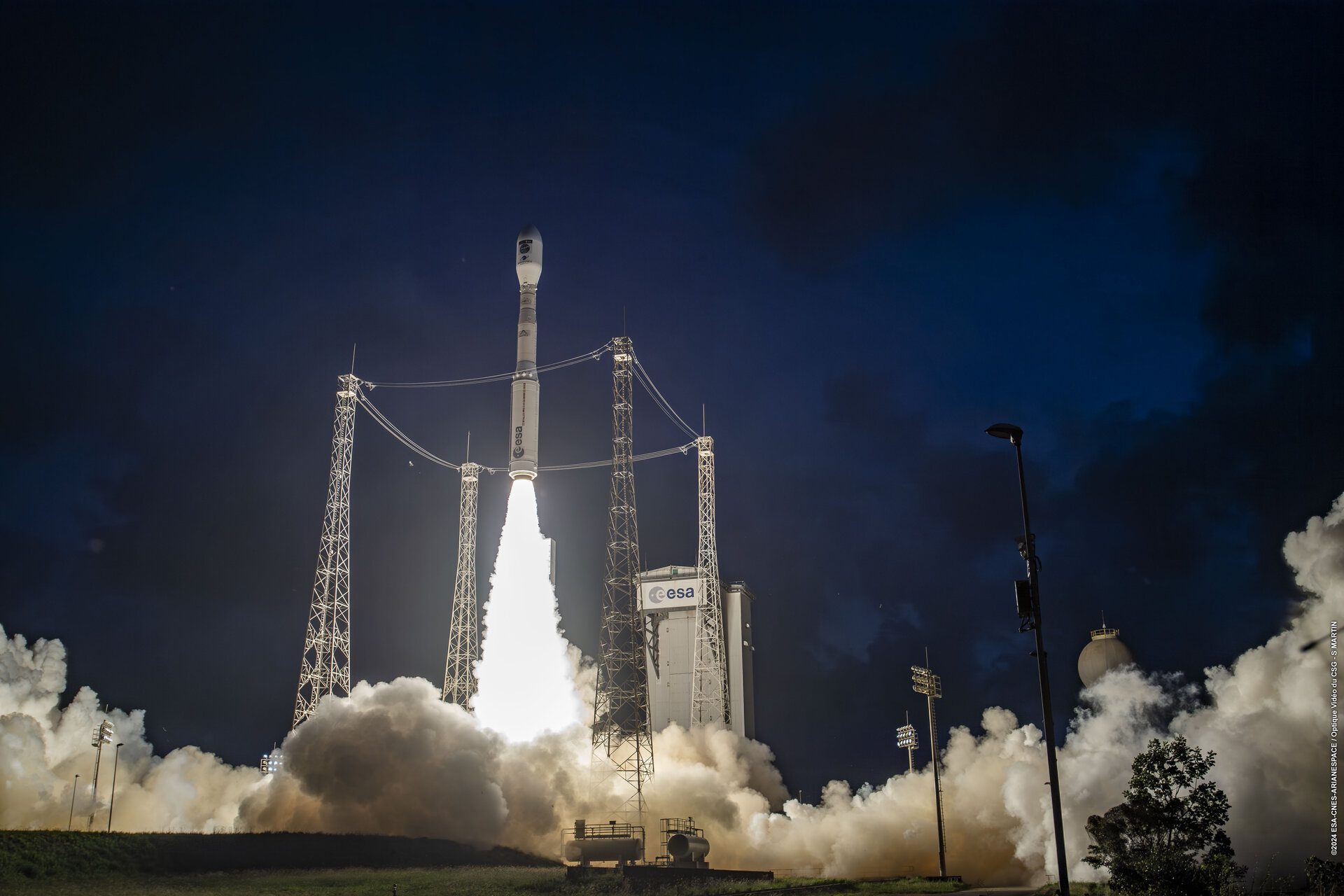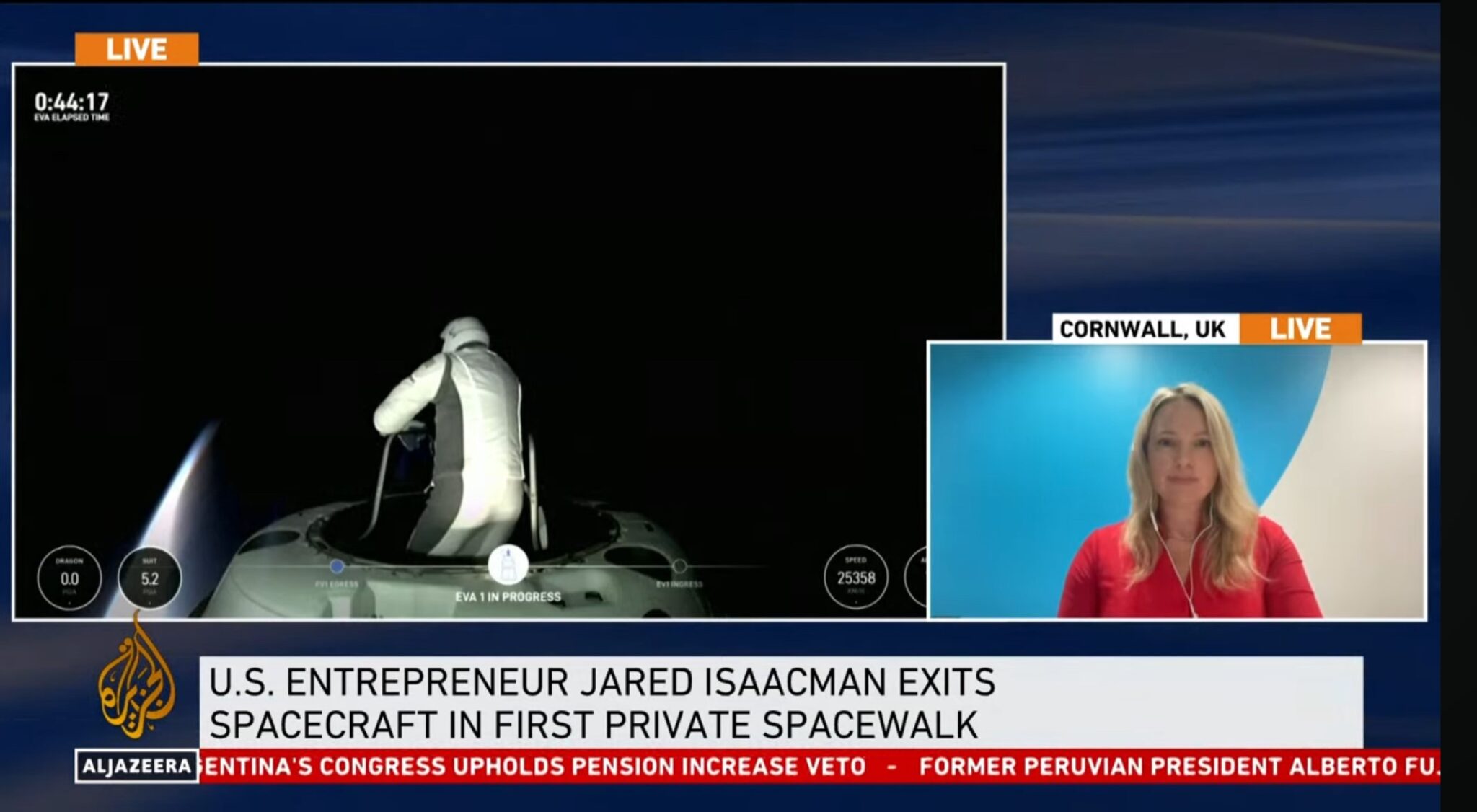While the UK Chancellor of the Exchequer, the Rt Hon George Osborne MP gained not-so-friendly headlines by cutting benefits for the disabled while reducing capital gains tax for the rich in his budget, which in turn, caused a Ministerial resignation and his subsequent U-turn on the policy, Osborne had other things on his mind when he made his slip up. He used his budget speech to note the increasingly imminent referendum on EU membership in June, warning that UK should remain in to prevent financial uncertainty. Good advice perhaps, but the same line of argument could be used against Prime Minister David Cameron for calling for the referendum in the first place.
So now that the big decision remain/leave decision approaches, what would the Seradata team advise the British people to do?
Firstly, whichever way the vote goes, we think that the UK should stay a member of the European Space Agency (ESA), which, despite some EU interference, remains independent of the EU. For, while ESA also suffers from the bureaucracy and national political agendas that so affects the EU, its achievements and benefits outweigh its downsides. And for UK science and industry, ESA membership remains a good thing. The good news is that thankfully, Boris Johnson, a leading figure in the Brexit Campaign, has now indicated that he wishes the UK to stay in ESA.
However, while that appears to settled, what about the main question? Should the UK remain in, or leave the EU?
In common with the rest of the United Kingdom, the Seradata team remains split on the issue. Some of us want to leave the EU, and some of us want to stay in. Thus, we cannot advise the British public, in a joint way, on which way to vote, but we can give them an idea of what to think about…
Most of the decisions on whether to leave or remain in the EU will revolve around the following major issues:
Sovereignty and democracy: Europe creates a major portion of UK laws and is not very democratic. While there is a European parliament, the origination of laws and their enforcement is mainly led by the non-democratically elected executive of the EU – the European Commission. While some EU laws have been well received such as those protecting workers rights (even if they are sometimes at the expense of competitiveness), some laws have skewed the ethic of human rights giving criminals and terrorists better treatment than their victims. However, while UK law making may be notionally more democratic, it may not be any better or fairer. The UK’s first-past-the-post voting system has its own democratic downsides usually having a minority electing the ruling party. The core Eurozone nations do seem set on more European integration with an eventual aim of having a “United States of Europe”. This might not fit well for some.
Immigration and working abroad: The unrestricted EU influx of immigrants puts pressure on the UK housing supply, pushing up house prices and rents, and puts pressure on health and education services. However, homeowners might not actually want house prices to stagnate or even fall, even if this benefits their own children/younger generation. EU Immigration does bring in valuable skills and enterprise that the nation needs, and the freedom to cross borders also allows UK citizens to work in other EU countries (important for those wanting to work in the space field). Like the rest of Europe, the UK population also has legitimate cultural and security concerns about the influx of Middle Eastern immigrants into the UK via Europe, even if it is accepted that many are simply refugees in need of help.
Economics and Stability: The UK currently spends about £19 billion on ESA but receives about half of this back in the form of rebates and funding. The rest is regarded as the price that the UK pays for its companies to have unfettered access to the Single European Market. So while leaving the EU would free up the net payment, this would have to be balanced by the financial downsides to UK industry. With less EU regulation and meddling bureaucracy (yes, all sides agree there is some), the UK’s industry could do even better but leaving the single market may result, for a time, in the imposition of import tariffs until a new free trade agreement between the two sides is properly negotiated. However, a hand over period of perhaps two years could allow this to happen without tariffs imposed. Having access to the single market via a subsequent free trade agreement may mean UK has to accept many EU laws/standards anyway. While leaving the EU is viewed by some being a “sinking ship”, especially given the EU’s sclerotic growth and shaky financial structures, this act might be the final one that actually accelerates the destabilisation of EU with all that means for UK trade and prosperity.
Jobs and Wages: Related to the above, leaving EU will probably cut immigration which may improve job availability for UK citizens and wages should rise – at least in the short term – although this wage rise effect might have been spiked somewhat by a recent rise in the minimum wage (which, by the way, actually encourages immigration from the poorer nations in the EU). Nevertheless, restricting immigration should also encourage training and the “up-skilling” of the indigenous workforce. An example of this is that Premier League football clubs may no longer be able to hire so many European footballers and will have to nurture home grown talent instead. As already mentioned, this effect works both ways and Britons might fight it harder to work abroad. Leaving the EU might also affect European and UK financial stability and may cause foreign companies to leave the UK actually causing jobs/wages to fall in the medium term. On the other hand, leaving the EU and its regulations and red tape might eventually improve the UK’s competiveness and productivity in the longer term, increasing prosperity and employment.
Security and Defence: The UK remains a powerful militarily independent nation in Europe even if parts of its armed forces (especially the Royal Navy) are not the size and power that they once were. While NATO remains the main Western European defence organisation, the EU has both diplomatic power and the power to impose significant economic sanctions. The EU’s sanction power has been successfully used against Russia after its annexation of parts of Ukraine. It can also be successfully argued that in being economically and politically connected via the EU this has made war in Western Europe (e.g. between Germany and France) much less likely. However, if the UK left it, the EU would no longer be able to police or mediate as well in border disputes between the UK and other nations (e.g. Spanish incursions into Gibraltar etc.) making conflict a little more likely. In a different consideration, unrestricted EU immigration does actually make it easier for terrorists to enter the UK. Despite the scare stories, leaving the EU would however probably not affect European police and security service cooperation or extradition arrangements.
Fisheries and Agriculture: The EU has provided proper agricultural standards and even protected animal rights and the environment to some extent. EU has also been able to save stocks of fish using fishing restrictions. However, joining the EU did give foreign fishing fleets rights to access UK national fisheries and their more efficient larger ships have nearly killed off the UK fishing industry. Meanwhile, UK agriculture, while it has benefited from EU farming subsidies (now reduced) it remains beset by restrictions and bureaucracy, hindering its prosperity.
Science and the Environment: Leaving the EU would however not mean that the UK would have to leave important European science organisations such as the European Space Agency or CERN which are currently independent of the EU. The EU has financed several major scientific and environmental programmes (including space ones at ESA) which the UK has benefited from. However, there may be a price. For example, the EU agriculture budget was actually raided to finance the EU/ESA joint Galileo navigation satellite system and there are mooted plans to recoup this money by using revenue generated by satellite controlled European-wide road pricing under the guise of congestion and pollution reduction.
Social programmes and Welfare: While some poorer areas of the UK has received some EU social funding, such funding mainly flows to poorer nations in the EU. Some might view it that the UK contribution to ESA might be better spent in the UK in this respect.
Friendliness, Solidarity and Travel: It is nice to feel part of things and having the European community spirit and shared culture that comes with being part of the EU. Leaving the EU might actually be viewed by our European neighbours as an unfriendly act by the UK and there could be sourness and even retribution both at a personal and at a national level. Travelling to Europe by UK citizens is now commonplace and losing the EU passport would slow down travel for British citizens.
With respect to all of the above, if you are a UK voter, the Best of British/European Luck! We hope you make the right decision.
Final Thoughts: you can never leave Hotel California…
While the “stayers” in the UK’s electorate probably just outweigh the “leavers” and bookmakers currently have “staying in the EU” as the favourite despite its odds lengthening. However, opinion polls have suggested that amongst those who will actually turn out to vote, it is probably the opposite way round. As it is, the “leavers” tend to be older people who are usually more likely to vote, and leavers are said to be more energised into actively planning to vote in order to get their way. Meanwhile, the “stayers” tend to be younger and are more fearful about leaving rather than enthusiastically wanting to stay. Given that the “stayers” are less likely to vote despite having a very small majority amongst potential voters, the referendum is thus likely to be very close. Unlike the UK’s first-past-the-post electoral system, in this one every vote really will count. A realisation of these factors, has caused the odds for leaving to shorten since the start of the campaign.
What can be predicted is that if there is only a small majority for leaving, then it can be expected that the EU will offer the UK some serious concessions in order to seduce the British people back into staying. This will be done with another referendum being held shortly afterwards to try to reverse the original result. This has happened before in other nations such as Ireland when an Irish referendum vote for a constitutional change initially went against EU plans.
…but there is a way of escaping from the Titanic
For those that do view the EU as a sinking ship like the Titanic, there is a way of escaping, even though it might be women and children first. You just have to discard your honour and self respect and dress up as a woman (assuming you are not one)…and vote to leave it twice.






